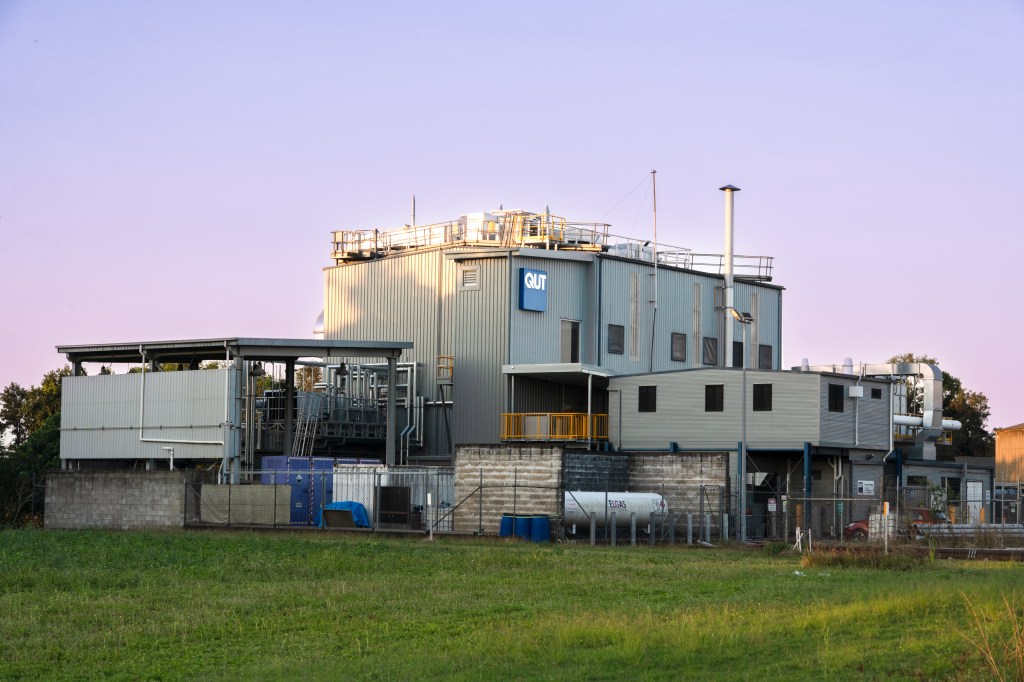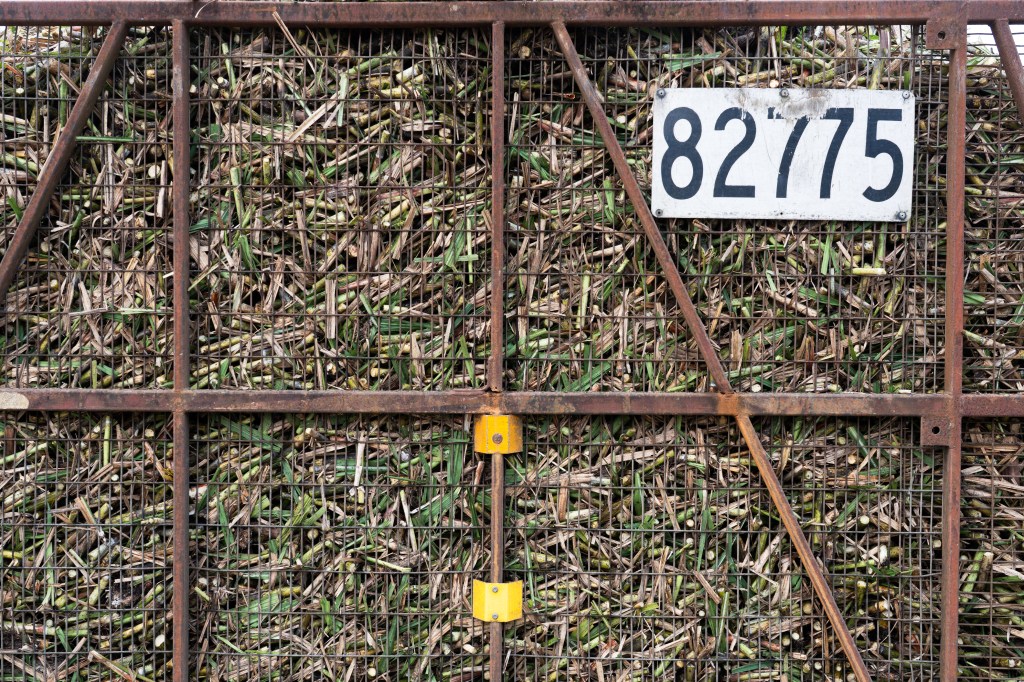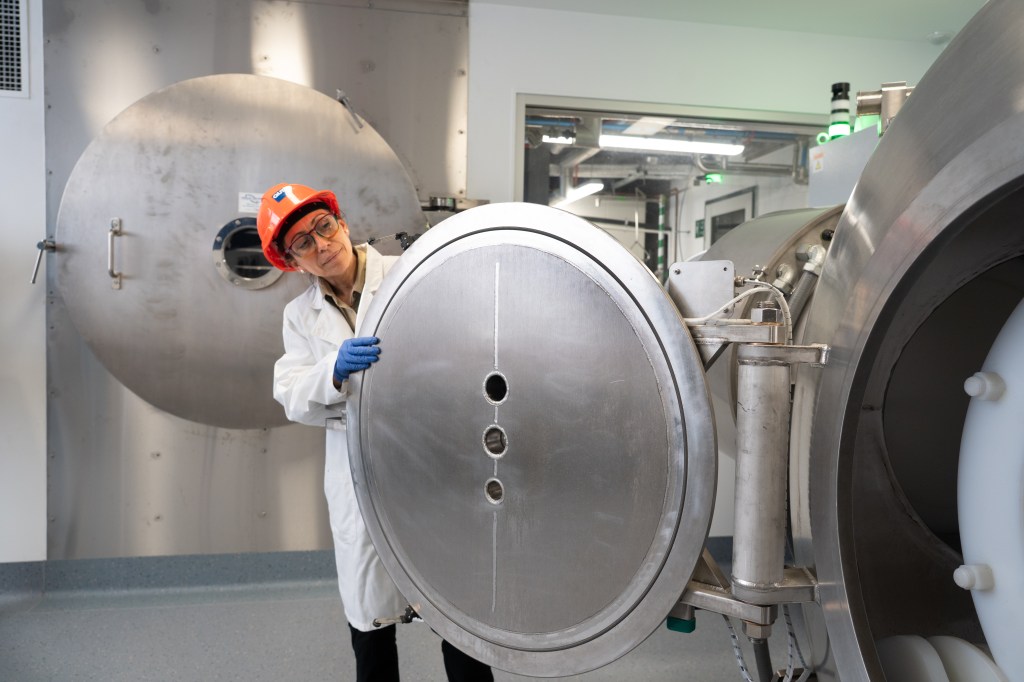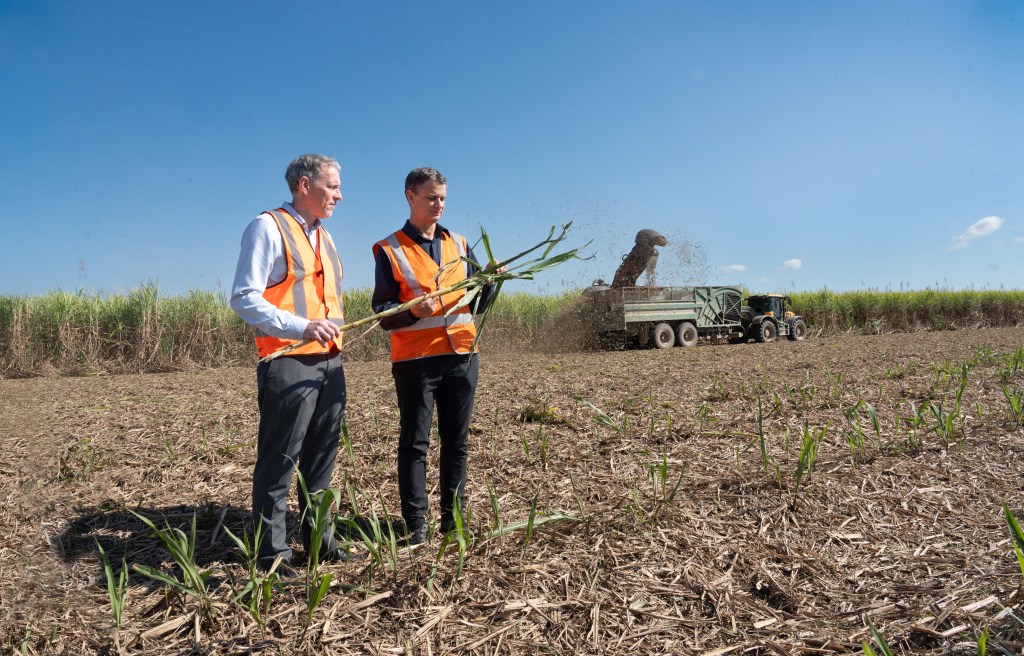Australia’s precision fermentation ambitions received a boost this week with the unveiling of the upgraded QUT Pioneer BioPilot in Mackay, Queensland.

Key Takeaways
- QUT’s Pioneer BioPilot in Mackay relaunched as Australia’s leading pilot-scale, food-grade fermentation facility.
- Backed by $18 million in federal and Queensland government funding through the Food and Beverage Accelerator (FaBA).
- Despite showing much promise over the last decade, precision fermentation where mostly proteins are created by genetically altered microbes, the industry has struggled to scale.
- Feedstock constraints, particularly sugar supply, remain a significant bottleneck.
- Dubbo-based Cauldron Ferm, has raised significant capital to build a commercial reactor, also in Mckay in the heart of sugar country, but that reactor will still be small on a global scale.
- A recent report found that if precision fermented protein production increased to 10% of world protein, it would use require 44% of current sugarcane cropland.

Key background
The Mackay Renewable Biocommodities Pilot Plant (MRBPP), established 15 years ago, has been rebranded as the QUT Pioneer BioPilot. It has supported biomass-to-fuel and chemicals research for years; the latest investment shifts focus toward food-grade fermentation and commercialisation pathways.
QUT’s Professor Ian O’Hara said the BioPilot would be crucial in converting Queensland’s sugar industry into a feedstock engine for high-value bioproducts, from biofuels to alternative proteins. Companies such as Eclipse Ingredients are already using the site to advance projects like lab-produced lactoferrin, a breastmilk protein with immune and nutritional applications.
For government, the message is as much about jobs as innovation. “It’s about turning Queensland’s agricultural strengths into global opportunities,” said Assistant Minister Sean Dillon.

Australia’s politicians and researchers hailed the Mackay upgrade as evidence Queensland can lead the global bioeconomy, which the World Bioeconomy Forum tips to grow from US$4 trillion today to US$30 trillion by 2050.
But industry watchers say precision fermentation is still long on promise and short on proof. Globally, no company has demonstrated that large-scale food production through precision fermentation is economically viable. Nor is there clear evidence the process delivers net climate benefits, given its dependence on energy-intensive tanks and agricultural feedstocks.
The Mackay upgrade follows investment last year into Cauldron Ferm, which secured government support in October and raised tens of millions to build its own site in the same regional centre. Yet even Cauldron’s facility, described as “commercial,” is smaller than the scale typically recognised as commercial in global fermentation — usually reactors in the 200,000-litre-plus range.

QUT Centre for Agriculture and the Bioeconomy researcher Professor Ian O’Hara said the plant would position Queensland as a globally connected innovation hub. “This opens opportunities in areas such as biofuels, enhancing impact and sustainability.”
A key feature of the facility was its fermentation bioreactors would allow companies to fast-track product development in the food and beverage sector. “This facility will enable innovative companies to take their ideas beyond the lab and into commercial reality, building Queensland’s reputation as a regional leader in biomanufacturing.”
Nourish Ingredients, an Australian precision fermenter which recently received approval to sell its vegan animal fat analogue in the US, had been forced to brew its product in Wuhan, China because of a lack of capacity in Australia.
Tangent
Overseas, companies like Perfect Day in the US and Remilk in Israel raised hundreds of millions to make dairy proteins in vats, but both have faced layoffs, delays, and scaling challenges. In Australia, precision fermenters such as All G has made progress, but only on the small, high-value products.
Big number
US$30 trillion — The projected value of the global bioeconomy by 2050, equivalent to a third of world GDP, according to a report by QUT last June.



